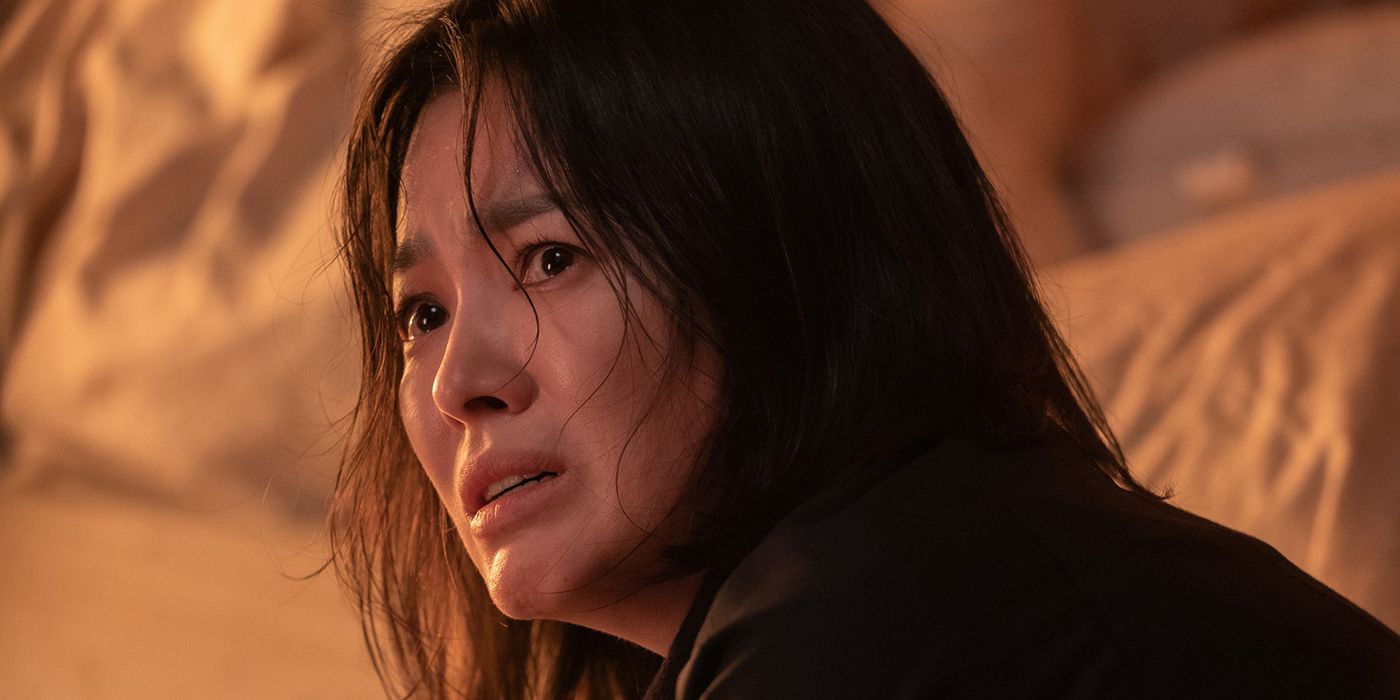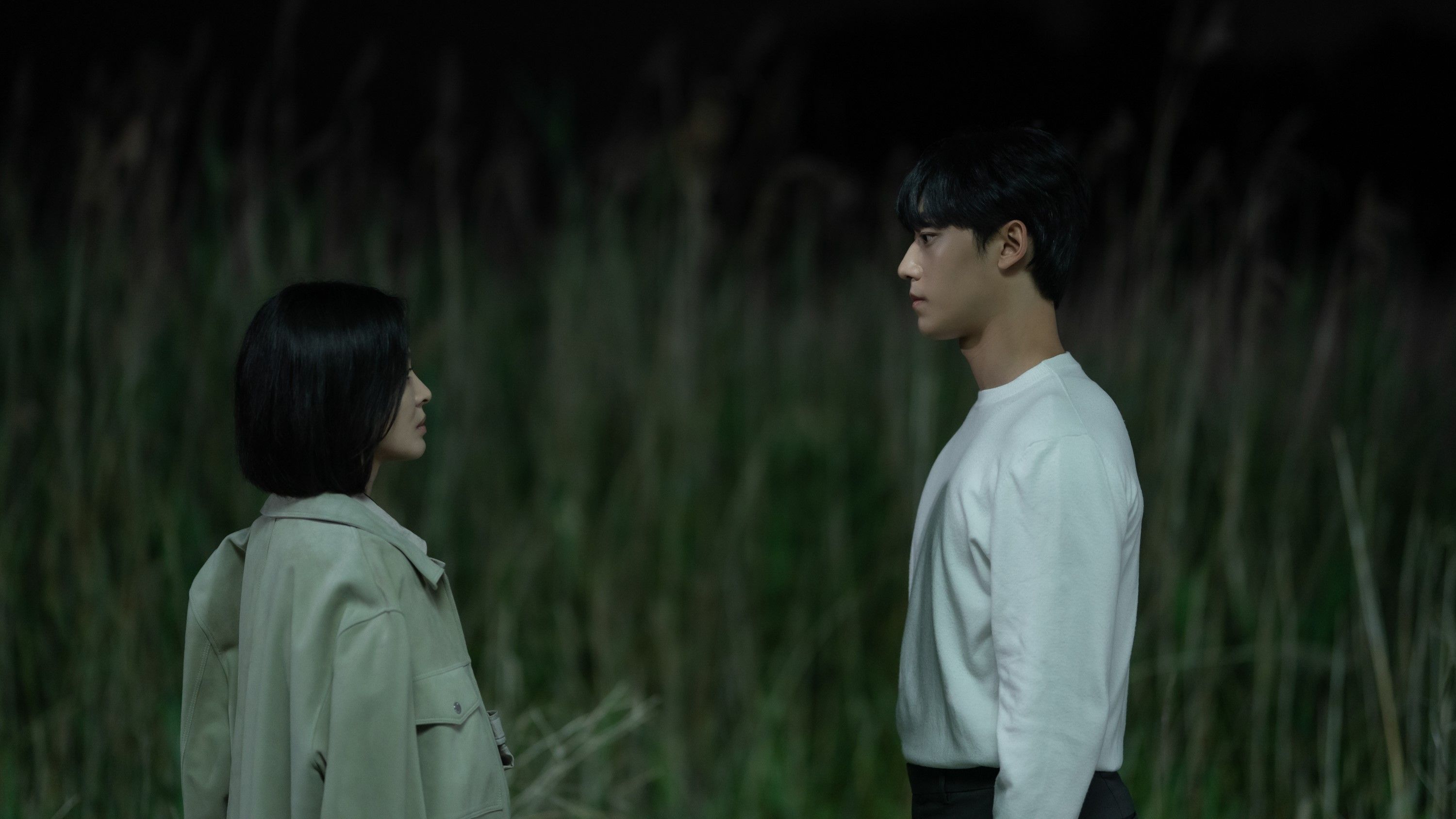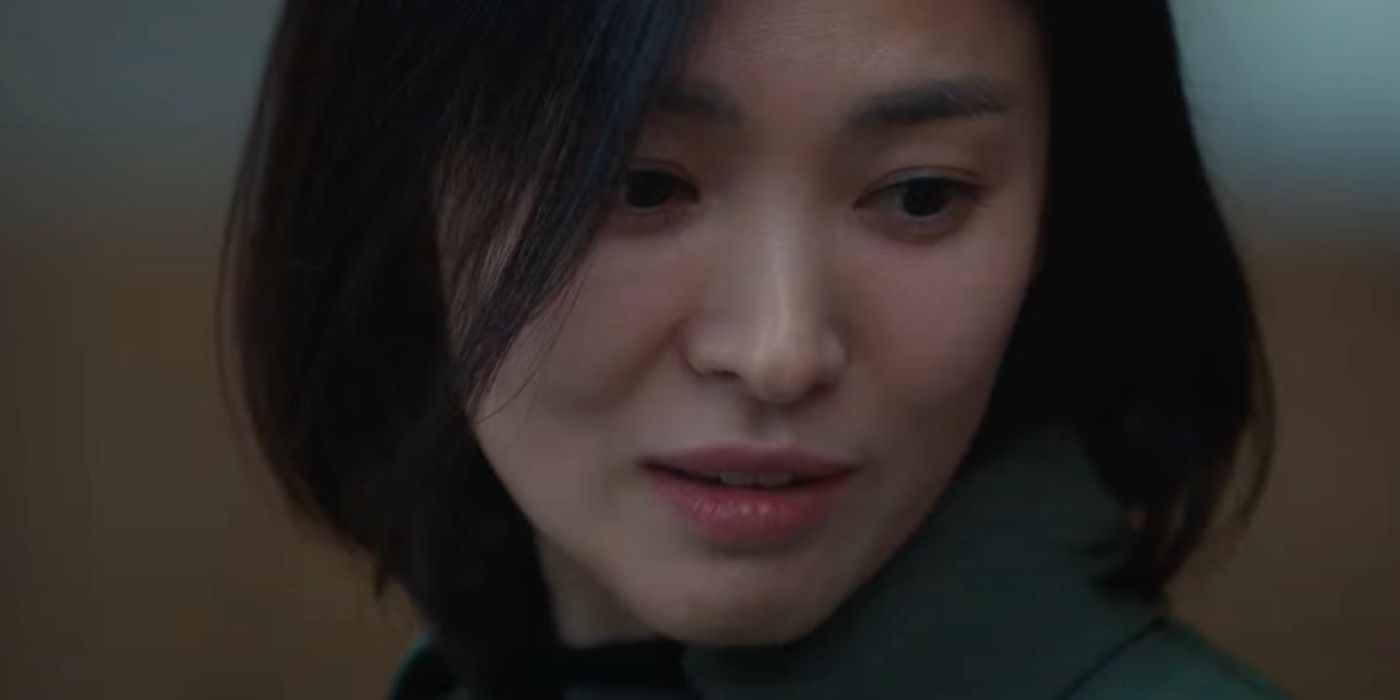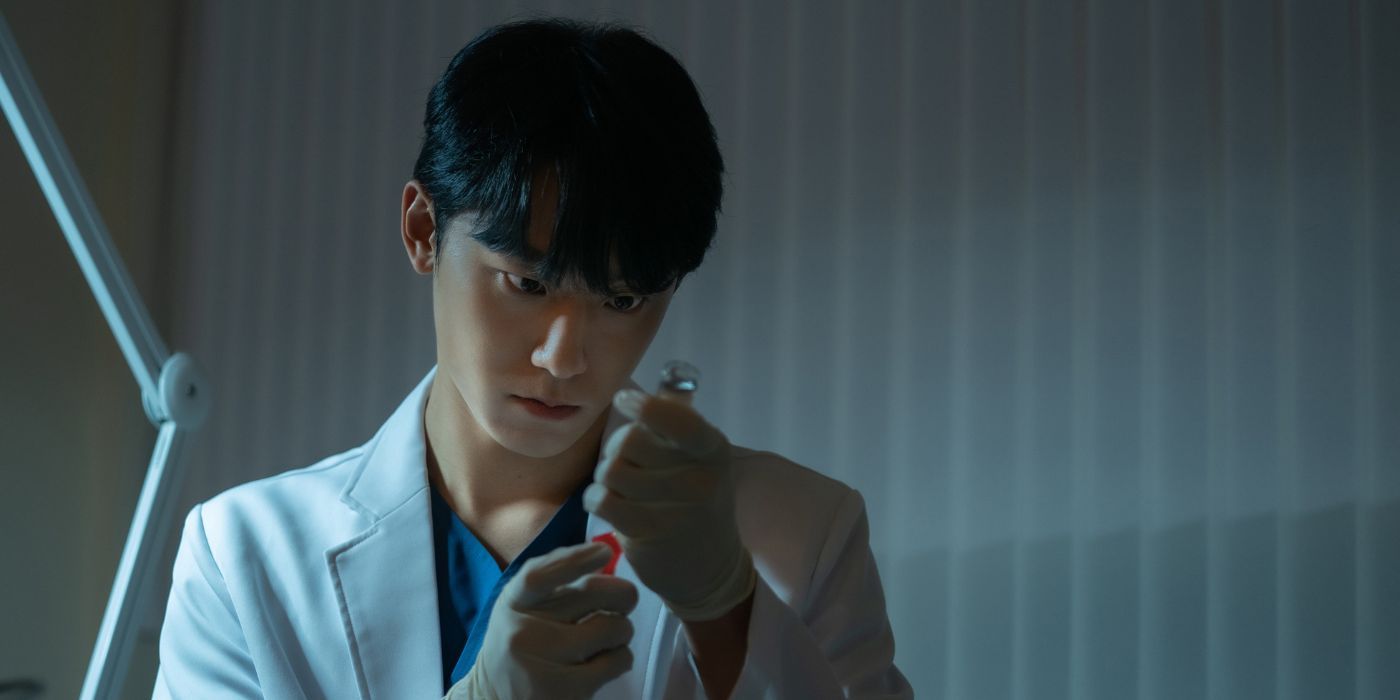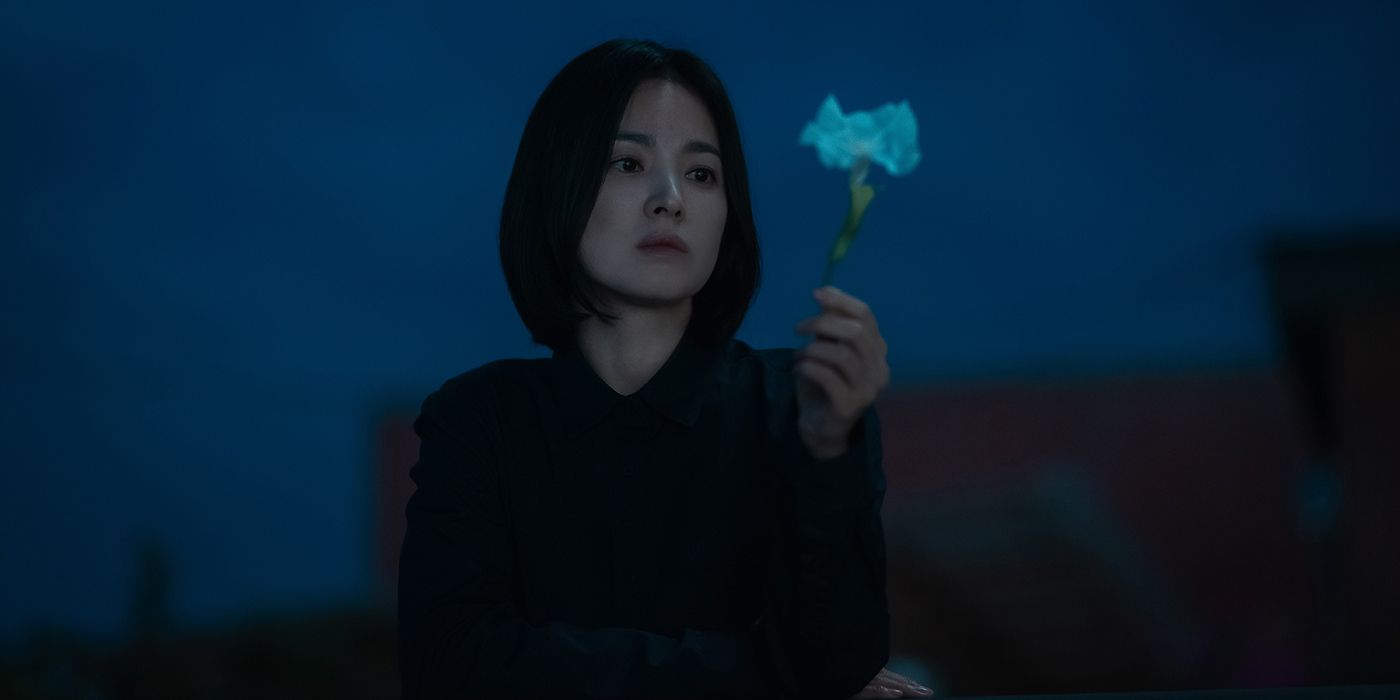Editor's Note: The following contains spoilers for The Glory, Part 2.
“Revenge is bad,” say the revenge movies. An eye for an eye leaves the whole world blind, and violent entertainment shouldn’t encourage imitation but portray vengeance as self-defeating. These are the rules. However, The Glory is a revenge movie written by Kim Eun-sook, in the form of a 16-episode K-drama. Despite the graphic violence and adult themes, there's a generosity of the latter genre's hallmarks. Characters speak out loud to themselves, coincidences render the entirety of South Korea into a dozen or so acquaintances, and heroine Moon Dong-eun (Song Hye-kyo) is a capital K-drama protagonist, right down to her effortless ability to charm any man she meets. And so, Kim Eun-sook’s effort to reconcile these two genres, with their diametric story endpoints, leaves The Glory with a most unusual revenge, one that satisfies the avenger, leaves her unharmed, and allows her a bright future. Lesson learned?
‘The Glory' Part 2 Is an Exciting but Rocky Finale
After a blistering first half, The Glory shows some cracks in the second batch of episodes, which premiered three months later. The gap may have muddied an already complicated story, one told out of order and with important roles occupied by somewhat stock characters. The police, for example, is embodied by one detective given a single dramatic moment in the final episode. Who is this guy, and what does he say about traditional law enforcement? What about those free-agent fixers or the shaman, or arguably Dong-eun’s mother? It might just be a problem of the mystery box storytelling, which front-loads access to Dong-eun’s head space and then kicks us out, the better for surprise when all her unknowable machinations click into place. Unfortunately, this is inconsistent by virtue of being consistent; we’re also left in the dark when it comes to the parallel plotting of male lead Joo Yeo-jeong (Lee Do-hyun). A major revelation about his relationship with Dong-eun marks the cliffhanger leading into the final episode, and it doesn’t help that he stands out for being a stereotypical K-drama lead, six feet tall and boyishly handsome.
Most idiosyncratic, however, is how Dong-eun’s revenge increasingly relies on others. In the prototypical revenge thriller Sympathy for Mr. Vengeance — at the cusp of the Korean New Wave and Park Chan-wook’s career — it’s the failure of institutions that leaves our protagonists no other recourse than self-reliance. Can’t go to the police? The law is yours. In The Glory, teenage Dong-eun seeks help from authorities within her school, and this only leads to further abuse. The police can’t help, her mom can’t help. She drops out of school. It’s upon this initially familiar track that she begins her revenge quest, manipulating people toward their downfalls and even deaths. At the close of Part 1, audiences theorized about what horrors Dong-eun had in store for Yeon-jin (Lim Ji-yeon), perhaps something to do with plastic surgery. In the end, however, it’s a far less creative retribution.
The Vigilante of ‘The Glory’ Plays by the Rules
Yeon-jin finds herself within prison walls, and she isn’t the first. Dong-eun uses a hidden camera to catch Sa-ra getting high and masturbating before a statue of Jesus, which shunts her off to jail. Dong-eun also contrives to have her mother Jung Mi-hee set an apartment on fire. Another hidden camera later, and it’s off to a psychiatric facility. Are these institutions now given tacit approval, or are they simply tools in Dong-eun’s toolbox? Detective Choi Dong-kyu’s final scene is a lament that he — the police — wasn’t there for Dong-eun 18 years ago. Though she barely responds, Dong-eun is leaving this world a better place than when she entered it, which is a far cry from the fiery wreckage of Mr. Vengeance or I Saw the Devil.
In fact, Dong-eun can literally leave, walking out of the police station as she does, because whatever crimes she’s committed are just as easily overlooked as they are proven. The fates of Jae-joon and Hye-jong are carried out by different hands, leaving Dong-eun’s clean. In a particularly twisty stroke of strategic genius, she manages to have Yeon-jin’s mother kill Hyeon-nam’s abusive husband in order to flip the mother on Yeon-jin. Two birds, and all she has to do is drift in and out of these people’s lives to look on her works and smile. There is no internal reckoning with her actions, no despair at the cycle of violence.
Song Hye-Kyo’s Revenge Is a Communal Exercise
One of the ways that The Glory mitigates the amorality of revenge is by mission creep. Yes, Dong-eun is avenging her own scars, but the bullies also victimized others, including Kim Kyung-ran and the now dead Lee So-hee, murdered by Yeon-jin, who also murdered her treacherous “friend” Son Myeong-oh; unambiguously, Yeon-jin is a menace to society. Then there’s her fixer Shin, the corrupt cop who certainly contributes nothing positive to the world. And what about the elementary school teacher who antagonizes Dong-eun, and turns out to be a child predator? How can vigilante violence be morally gray if it’s so agreeable? Dong-eun’s revenge also empowers others similarly disempowered, most of all the housekeeper Kang Hyeon-nam (Yeom Hye-ran), a victim of domestic abuse whose work for Dong-eun unlocks unknown talents.
As Part 2 gets underway, a question is increasingly given voice, including by Yeo-jeong and Yeon-jin’s husband Ha Do-yeong: when all this is over, will Dong-eun be able to live happily? It’s the old line inspired by the infamous Nietzsche quote, with the abyss gazing also. It's central to the most famous Korean revenge story, Oldboy, with a quote of its own: “Even though I'm no more than a beast, don't I, too, have the right to live?” Kim Eun-sook agrees that revenge is damning and all-consuming, and therefore, has Dong-eun escape it. This is where the handsome K-drama lead comes in.
Yeo-jeong promises to restore Dong-eun, to where she can begin her life where she left off, at age 19. Unfortunately, he has a little restoration of his own to do. Not long ago, his father was murdered by a patient, and he swore revenge. Well, there’s that saying about the family that plays together, and indeed, Dong-eun and Yeo-jeong combine their revenge projects, like it’s a CD collection. In patching up the cracks in the legal system instead of forsaking it entirely, Dong-eun’s revenge is about setting things right, making things whole: herself, others. So if it forfeits the discouragement, what is it doing?
Revenge Gives ‘The Glory’ Its Purpose
In prison, Yeon-jin faces poetic justice, as bullying inmates make her report the weather in a cruel mockery of her former life. Of course, Dong-eun isn’t there to witness that, and actually, much of the final episode suggests that a prison sentence isn’t “enough,” as in the case of Yeo-jeong’s revenge. His father’s killer is behind bars but continues to terrorize him and his mother. And so, Yeon-jin is almost an afterthought during the final movement of The Glory, with the true climactic matter being Dong-eun and Yeo-jeong’s relationship. Revenge for Yeo-jeong is what gives Dong-eun purpose after she nearly ends her life.
Looking at the story in any number of more straightforward ways than its nonlinear telling allows, Park Yeon-jin is a teenager who killed a fellow student, grew up to be an equally murderous adult, and was eventually exposed and convicted. The only thing that Dong-eun’s intervention did was remove her protection. As even Yeon-jin admits, she would’ve gotten away with it otherwise. So, floating above the abyss, Dong-eun’s revenge isn’t about eliminating people but eliminating privilege. The Glory turns out to be more so a study of power than a straight revenge thriller, where moments of personal deconstruction are just as devastating as the physical destruction. After Yeon-jin’s bullying is exposed and talk of divorce hits the rumor mill, her friends begin to turn on her. The threats and the menacing stare are no longer buttressed by money. And watching powerful people unravel is a visceral thrill of its own, and increasingly popular, though The Glory sticks to its genres — however plural —rather than attempts at satire like Parasite or Triangle of Sadness.
‘The Glory’ is Another Perfectly Imperfect K-Drama
Of course, The Glory remains a sprawling, messy saga textured by thematic contradictions. If Dong-eun’s truly taking revenge on privilege, why is her chief ally the wealthy prince of a major hospital? The trick to K-dramas is that they offer absurd situations and predictable plots — and it matters not at all. The price of entry is a certain suspension of disbelief, or storytelling logic, but the rewards pay out tenfold. When Character A tells Character B, “I love you,” it’s the most important thing in the world, and not something rather inherent to a romance. Call it storytelling with reckless abandon, but the superlative quality of K-dramas makes for a richness of experience. The cityscapes glisten, the food is mouth-watering, and every villain claws their way out of the fiery depths of hell just to call the heroine a loser (even though everybody likes her).
It’s the brilliant acidity of Chae Soo-bin in Cheer Up!, or the pure evil crackling across Lim Ji-yeon’s lips as Park Yeon-jin, offering a deeply studied sociopathy papered over an explosive rage. It helps that she and her horrible cohorts are so unsubtle. When they get angry, they scream. They break things. Glass shatters all around them, clothing gets torn. It’s a cacophony that registers as collective madness, the end zone of so many Korean revenge movies. We’ve preserved the energy of Oh Dae-su’s crazy eyes as he’s about to have his teeth ripped out, or Lee Byung-hun’s doomed hero in I Saw the Devil bashing the cannibal’s skull until it spurts. After all the chaos and bloodshed, Moon Dong-eun shuffles off toward the credits with quiet dignity. She hasn’t removed her scars but repurposed them, suggesting that maybe the solution to the revenge problem is just as individual as the quest itself. She can’t break the cycle, but she can say “I love you.”

